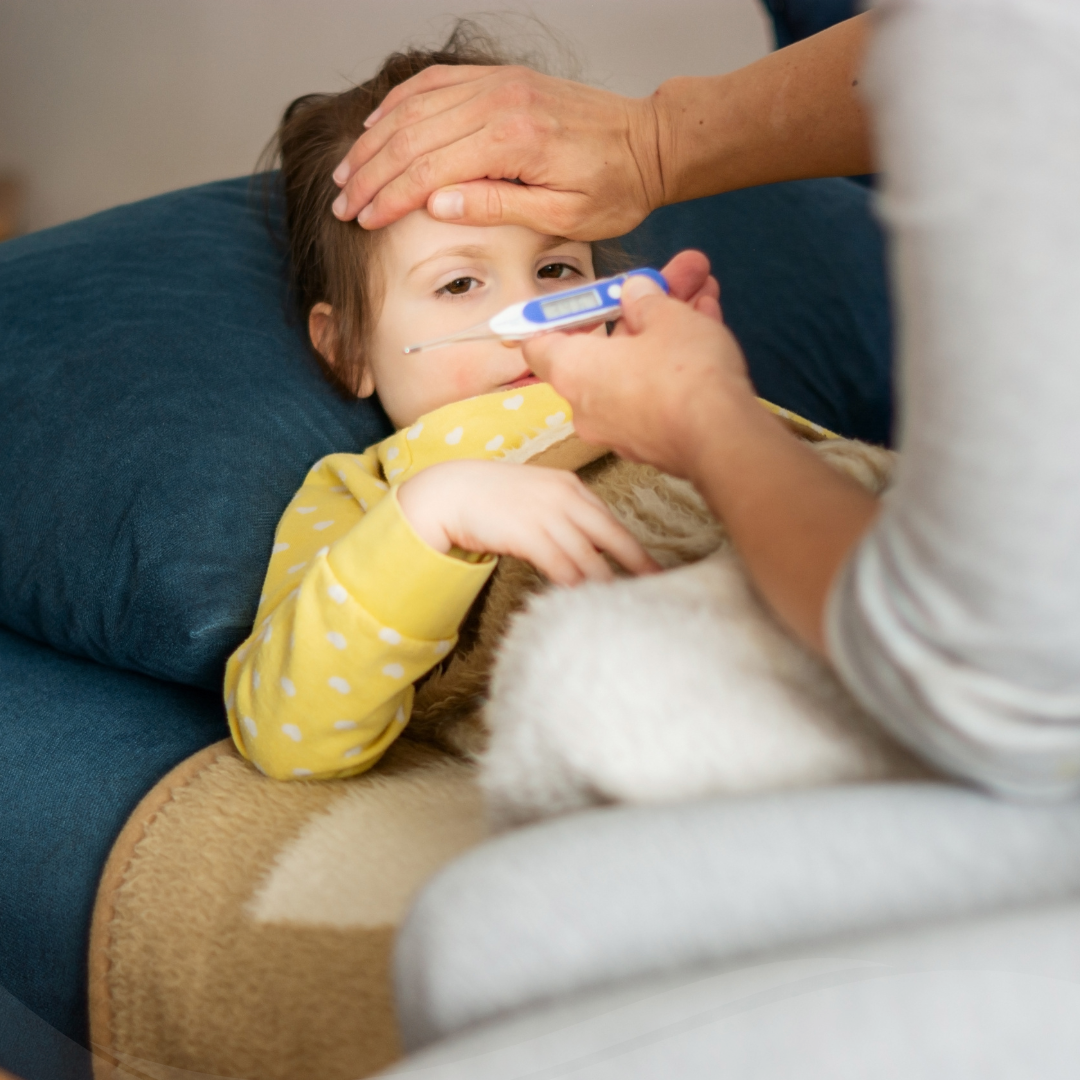Influenza (the flu)
The flu is a highly contagious infection of the upper airway caused by a virus which spreads easily by coughing, sneezing and direct contact with spit, phlegm or runny nose.


Causes & Symptoms
The flu spreads easily by coughing, sneezing and direct contact with spit, phlegm or runny nose. At first, the flu may seem like a common cold with a runny nose, sneezing and sore throat. But colds usually develop slowly, whereas the flu tends to come on suddenly.
Flu (influenza virus) reduces the body’s ability to fight other infections and in more vulnerable populations can lead to complications, the most common of which is pneumonia, (infection of the lungs) which can be deadly, especially in elderly people and those living with chronic illness.
Common signs and symptoms of the flu include:
- Fever
- Aching muscles
- Chills and sweats
- Headache
- Dry, persistent cough
- Shortness of breath
- Tiredness and weakness
- Runny or stuffy nose
- Sore throat
- Eye pain
- Vomiting and diarrhea, but this is more common in children than adults
Populations at Risk

The following groups of people are at high risk of serious illness from the flu and are eligible for a free flu vaccine in BC:
– Children 6 months to less than five years of age
– Pregnant women at any stage of pregnancy during the influenza season
– Seniors 65 years and older
– Residents of any age living in residential care, assisted living or other group facilities
– Indigenous people
– Children and teenagers required to take Aspirin® or ASA for long periods of time due to a medical condition
– Children and adults with certain medical conditions, including: Heart or lung disorders that require regular medical care (such as asthma, chronic obstructive pulmonary disease or cystic fibrosis); Kidney disease, chronic liver disease such as hepatitis, diabetes, cancer, anemia or weakened immune system; Those with health conditions causing difficulty breathing, swallowing or a risk of choking on food or fluids, such as people with severe brain damage, spinal cord injury, seizures or neuromuscular disorders.
– Those who are very obese
– People who provide essential community services such as police officers, firefighters, ambulance attendants, and corrections workers
– People who work with live poultry
Possible complications from the flu
If you are young and healthy, the flu usually is not serious. Although you may feel miserable while you have it, the flu usually goes away in a week or two with no lasting effects. But children and adults at high risk may develop complications that may include:
– Pneumonia
– Bronchitis
– Asthma flare-ups
– Heart problems
– Ear infections
– Acute respiratory distress syndrome
– Pneumonia is one of the most serious complications. For older adults and people with a chronic illness, pneumonia can be deadly.
When to see a doctor
If you have flu symptoms and are at risk of complications – such as those living with chronic respiratory conditions – see your doctor right away. Taking antiviral drugs may reduce the length of your illness and help prevent more-serious problems.
Get emergency medical attention if you have any of these signs or symptoms:
For adults these can include:
- Difficulty breathing or shortness of breath
- Chest pain
- Ongoing dizziness
- Seizures
- Worsening of existing medical conditions
- Severe weakness or muscle pain
For children these can include:
- Difficulty breathing
- Blue lips
- Chest pain
- Dehydration
- Severe muscle pain
- Seizures
- Worsening of existing medical conditions

Treatment
Those suffering from the flu should stay at home, drink lots of fluids, rest and eat a nutritious diet.
Over-the-counter medication can help with headache, muscle aches and fever such as acetaminophen (for example, Tylenol©) or ibuprofen (for example, Advil©).
Take antiviral medication, if prescribed by your doctor. Not everyone will be given antivirals because it is only recommended for people with severe illness, people who require hospitalization and people who are at high risk of complications.

Prevention
Getting the annual flu shot, proper hand-washing and staying home when sick are key in making sure you are as healthy as possible.
We recommend everyone age 6 months or older get a flu vaccine. Flu vaccination is especially important this season because the flu and coronavirus disease 2019 (COVID-19) cause similar symptoms.

The influenza vaccine is not 100% effective, so it’s also important to take several measures to reduce the spread of infection, including:
Wash your hands.
Washing your hands often with soap and water for at least 20 seconds is an effective way to prevent many common infections. Or use alcohol-based hand sanitizers if soap and water aren’t available.
Avoid touching your face.
Avoid touching your eyes, nose and mouth.
Cover your coughs and sneezes.
Cough or sneeze into a tissue or your elbow. Then wash your hands.
Clean surfaces.
Regularly clean often-touched surfaces to prevent spread of infection from touching a surface with the virus on it and then your face.
Avoid crowds.
The flu spreads easily wherever people gather — in childcare centers, schools, office buildings, auditoriums and public transportation. By avoiding crowds during peak flu season, you reduce your chances of infection.
Avoid anyone who is sick.
And, if you are sick, stay home so that you lessen your chance of infecting others.

